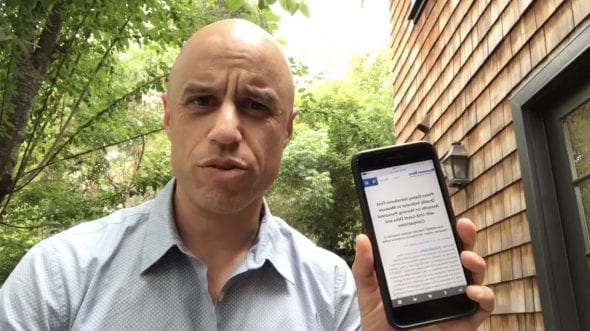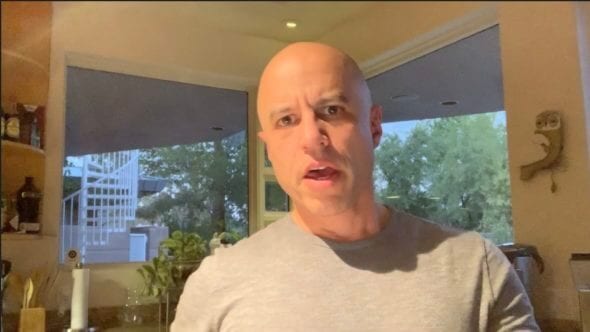Could an obsessive focus on metrics and the bottom line be killing patients and destroying our pharmacy colleagues?
I respond to a recent NY Times article about the growing moral injury inflicted by our corporate overlords. Here’s a followup piece on Walgreens and prescription errors.
Here is the official CVS response.
Here’s our pharmacist rap tribute anthem. And Phil The Pharmacist (a Medimoji special).
And don’t miss Doc Vader ranting about PBMs!
Hey everyone, Dr. Z. Okay, first of all I wanna say I’m not gonna curse in this piece, so you can and should share it. This is crucially important, okay? There was a New York Times article about CVS and the other large pharmacy chains pushing performance metrics, understaffing and overworking and asking pharmacists to do more and more with less and less, leading to potentially errors.
Now again, correlation doesn’t mean causation, but let’s really dig into this because I think it gets to the heart of performance metrics, medicine as a business, and the fact that in this country we do not reward safety and quality, we reward volume. Still, even in this brave new world of Health 2.0 and it is killing patients and, believe it or not, it’s killing caregivers. We have, like, double the suicide rate of the rest of the world, we’re suffering moral injury every day trying to do the best thing for our patients while making a living, while supporting our families, while understanding that we were idealistic and went into this for a reason, and our frontline pharmacists are like canaries in the coal mine for this. Let’s talk about this.
And I’ll link to the article and I want you guys to share this. So, imagine you have a job where you have to fill prescriptions, give flu shots, tend a drive-through, counsel patients, catch potential mistakes that maybe physicians or other entities have made somewhere in the system, educate both the patients and the doctors, and deal with insurance companies, all right? All while being under the constant threat of these performance metrics which say you have to make sure that patients are asking or getting refills, that you’re calling doctor’s office, pushing for refills, that you’re pushing for 90 day supplies of medicines because that’s more money, and making sure you do a prescription every minute because time is money and volume is money in these systems.
Now, you have these big chains, which dispense 70% of the prescriptions in America, pretty much running the show. The CVSs, Rite Aid, Walgreens, etc. Now, CVS was really singled out here because they are the most aggressive, apparently, in terms of these performance metrics. Now, remember this. Pharmacists on the front lines who are understaffed and are going crazy trying to fit these metrics are now making mistakes that were documented in the article. So people are dying, they’re getting methotrexate instead of some other benign drug. Children are getting steroids instead of another benign drug. I mean, these are, they can cause injuries, they can cause fatalities, they can cause suffering and they are entirely preventable. Humans make mistakes, but we can design systems that are incentivized to decrease mistakes. However, we don’t have that. Instead, our financial incentives are all around squeezing as much out of an individual pharmacist as we possibly can knowing, the system knowing that that pharmacist, and by the way, substitute nurse or a doctor or a respiratory therapist or a dietician or whatever, housekeeper, knowing full well that those people who dedicated their lives to caring for other human beings, to applying science to the problem of humanness, knowing full well that they are expendable. That in a second, you could pull another one and put it in their place. So if they open their mouth and say, “You know what, “I’m not comfortable with this.” “Okay, go be not uncomfortable with this “in the unemployment line.” And so pharmacists and others are terrified of retribution for speaking up. So what do they do? They anonymously hit up their pharmacy boards in the states.
The majority of which do not have any ability to look at errors on scale and measure how many errors we even have that are happening due to all this understaffing and overmetricizing, or whatever else is going on that’s causing these errors, right? And the pharmacy boards of which lawyers and representatives of the major pharmacy chains often sit on these boards, so that’s gonna be adjudicated fairly. And knowing that if their name is associated with any complaint, these pharmacists are going to potentially lose their job. Right? And so here you have a system that is designed by its very nature, remembering that reimbursements for these drugs are dropping ’cause of insurance pressures, and so the companies have to make money and they do that by squeezing more and more out of less and less. At whose expense? The patient’s. Why? Because these companies don’t suffer when a patient is injured. You know, maybe they’ll get sued, and that’s a rare thing. But do they get paid to provide quality? No. And who intersperses themselves in the middle of this? The pharmacy benefit managers, the biggest parasites in all of medicine.
Started with good intentions, let’s keep pharmacy costs under control, medication costs under control, let’s represent employers, and now they are simply a rebate providing, money game shifting parasite. Which, by the way, several of which are owned by the big pharmacy chains. You don’t think this is a money game? You don’t think Optum is making tons of money from OptumRx? Come on, guys. In this country, this is a money game at the expense of patients, at the expense of caregivers, at the expense of our front line pharmacists. So, imagine, all right, that you interview a thousand pharmacists, which they did in this article, or as part of the article reporting. 60% of the pharmacists said they feel undue intimidation and pressure to fulfill performance metrics, of which their salary or bonus or other things may be dependent, at the expense of patient safety. And of that 60%, 60% of those pharmacists work in the large retail chains as opposed to a community independent pharmacy or a hospital pharmacy or something like that.
Let that sink in. It is the big companies, that again, are just behaving according to incentives. I know people in the highest echelons of these companies; they’re good people in a bad incentivized system that is causing harm. So, 60%, it’s unconscionable that we’re allowing this to occur. There should be riots in the street with the number. And by the way, the deaths and the injuries are, you don’t think they’re underreported? They have no mechanism to be reported. The state boards have very little power. This has been a struggle, all right? So it’s a huge problem. Now, here’s another part. The horrible incentive structure in the retail pharmacy business trickles out to cause suffering and pain in the rest of healthcare. How? You’re a doctor’s office.
You’re now deluged with requests for refills on medications that don’t need refills because some algorithm told a pharmacist that they have to call the doctor’s office to ask for a refill on a one-time steroid pulse. Now this doctor’s office that’s already drowning in effing paperwork is now having to say, “Oh crap, now there’s a legal request for a refill. “I have to deal with that. “My inbox is already killing me.” This is dumb. Why are they incentivized to ask for refills? ‘Cause it’s more money, people. It’s about cash. It’s not about patient care, it’s about cash money. Period. And imagine this, hmm, huh. You’re a psychiatrist’s office. You write a prescription for lithium for someone with bipolar. You write on the prescription, “One month supply only.” The algorithm, or whatever it is, either mistakenly or intentionally overrides that and pushes for a 90 day refill, 90 day amount because it’s covered by insurance and the company is incentivized to be paid as much as possible by dispensing as many pills as possible. And what happens now?
This patient potentially has the ability to seriously overdose on this medication or take it for longer than necessary or whatever it is. And the American Psychiatric Association has weighed in on this. It’s a huge problem. Now, is the answer destroy these corporations, go back to independent pharmacy? Maybe, maybe it is. If we could pull that off, I’d love to see it happen. Because when we had an independent pharmacy, the doctor knew the pharmacist, the pharmacist knew the doctor, they had systems in place. Sure, errors still get made and we need bigger systems and technology to help with that systems design, yes, but there was a personal relationship. So maybe that’s the answer. It’s never gonna happen, so let’s check that off as not gonna happen. So, what can happen? Number one, we can actually change incentives, whether it’s legislative or whatever, ’cause right now pharmacy boards, they focus on individual pharmacists when there’s an error. “Oh, you bad pharmacist, you should be punished.” Is that how it should frickin’ work?
No, it should be this. “Oh, you made a mistake as part of a company “which now we’re gonna look “at those company work environment practices, systems, “look at a root cause, do a just culture kind of analysis “and go, ‘Hm, looks like CVS done effed this up.’ “They’re understaffing you, making you work a drive-through, “give flu shots, counsel patients, “do all this stuff at once. “And not enough technicians, “or technicians aren’t allowed to do enough, whatever it is, “figure it out and start to incentivize that. “Ooh, now that’s company’s gonna have to pay for that. “There’s gonna have to be an incentive “to do the right thing for patients.” And so we have to start pushing our legislators and our state boards and our governance to actually lead and accomplish that. And you know what, I think the big corporations actually are gonna be okay eventually with focusing on quality if they’re paid to do it.
‘Cause they will go where the money is, period. That’s what corporations do, for better or for worse. I like America. I think ultimately it’s for better that we have capitalism, but let’s make it work right, okay? ‘Cause right now it’s a crony oligopoly that isn’t incentivized right, especially in healthcare. All right, so the call to action is this. We need to focus on holding these corporations responsible for quality, we need to support our brothers and sisters on the front line in pharmacy and the pharmacy technicians and everyone working in these big retail chains, trying to take care of our patients safely, and we often blame them for driving us crazy. It’s not their fault, you guys, okay? It’s incentives, incentives, incentives. And we need to make sure, again, that we’re all in this together, that everyone in healthcare stands up together with one voice when these problems meet us. I want you to read that New York Times article, I want you to share all of this. I want you to become a part of this movement. If you’re a pharmacist, and you’re not gonna lose your job, leave a comment. If you’re a pharmacy, and you are gonna lose your job, leave an anonymous comment using a YouTube account on the YouTube clip, all right? ‘Cause we need to hear your voice and the public needs to see when they’re watching this video that you have weighed in.
Because you’re the ones there, touching the patients, experiencing this effect, all right? So have your voice heard, that’s what this platform is about. All right, guys. I love you and we out. Peace.
Related Videos
Category
- The ZDoggMD Show (799)
- Featured Videos (188)
- Doc Vader (142)
- Against Medical Advice (128)
- Medical Humor (95)
- Public Service Announcements (87)
- Music Parodies (74)
- Nurses (59)
- Meditation (38)
- ZVlogg (36)
- The VPZD Show (31)
- ZTalks (28)
- ZBlogg (24)






